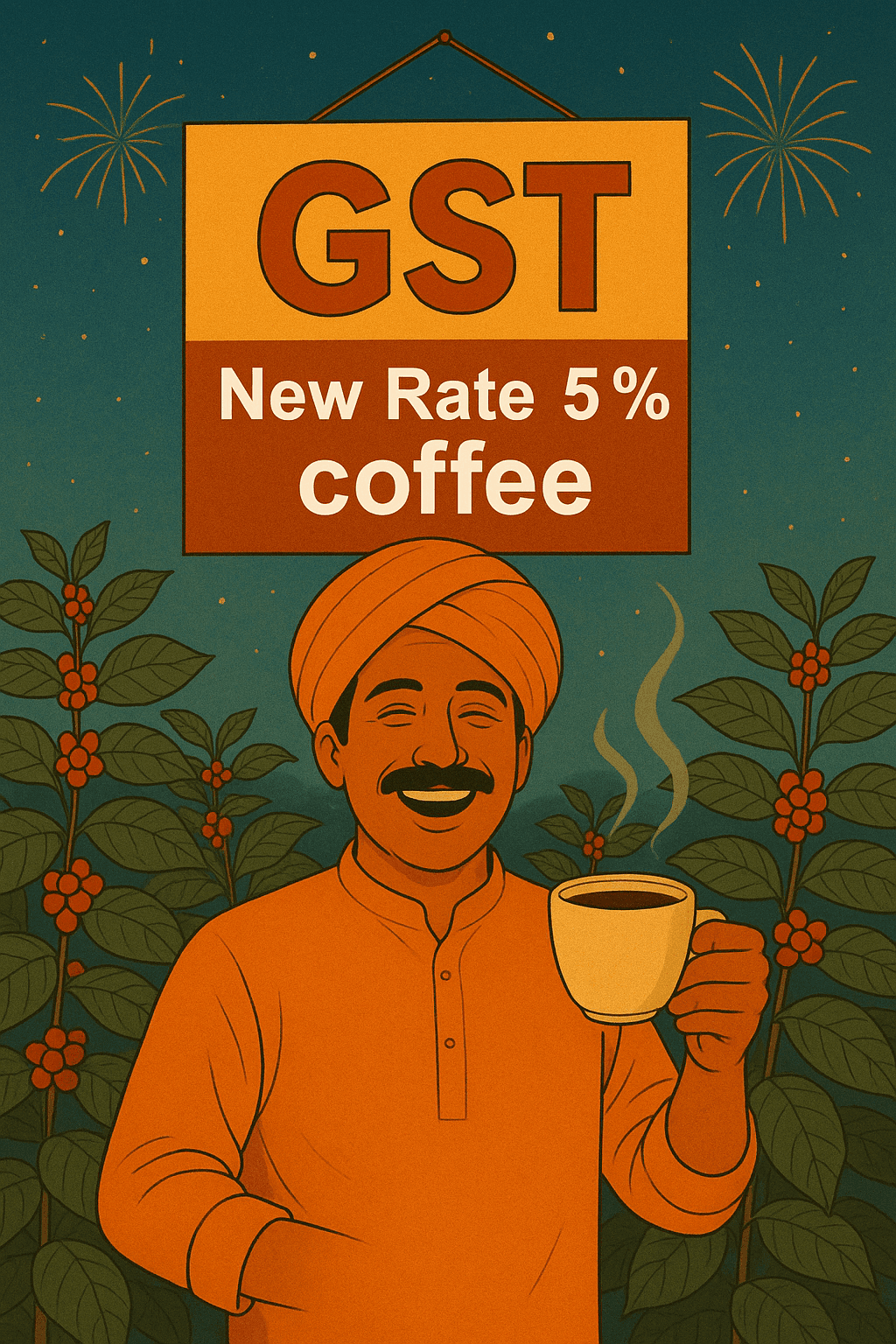New Delhi, September 4, 2025 (Qahwa World) – The Indian government has announced a sweeping reform of its Goods and Services Tax (GST), slashing rates on coffee and other food products from 12%–18% down to just 5%. The decision, taken during the 56th GST Council meeting chaired by Finance Minister Nirmala Sitharaman, marks one of the most significant tax changes since the GST system was introduced in 2017.
The reform simplifies India’s indirect tax structure into two main slabs—5% for essential and merit goods, and 18% as the standard rate—alongside a new 40% rate for de-merit goods such as tobacco and luxury items. The reduced rates, including the cut on coffee, will take effect from September 22, 2025, coinciding with the Navratri festival.
Coffee Industry Among Key Beneficiaries
Coffee has been placed in the merit category, meaning products that previously attracted 12% or 18% GST—such as roasted beans, instant coffee, and other processed coffee items—will now be taxed at only 5%.
Industry experts expect this move to have a ripple effect across the entire coffee value chain:
-
Growers and processors are likely to benefit from stronger domestic demand, as lower retail prices could encourage greater consumption.
-
Retailers and cafés may see a boost in sales volumes, with increased affordability improving consumer access to both mainstream and specialty coffee.
-
Consumers will directly benefit from reduced prices, especially as food and beverage costs have risen sharply in recent years.
A Broader Economic Push
The decision is part of a wider strategy aimed at easing the cost of living, stimulating consumption, and simplifying India’s tax regime. Alongside coffee, the rate cut covers other everyday items including chocolates, butter, ghee, sauces, noodles, and packaged snacks.
“This rationalisation is designed to make GST simpler, more transparent, and more consumer-friendly,” Finance Minister Sitharaman said after the council meeting, stressing that the two-slab system will also reduce compliance burdens for businesses.
Looking Ahead
India—already one of the world’s largest producers of Arabica and Robusta—is expected to see a surge in domestic coffee consumption following the tax cut. Analysts suggest the move could help narrow the cultural gap between tea and coffee, while further boosting India’s vibrant café culture and specialty coffee sector.
The GST overhaul signals a structural shift in India’s economic policy, and for coffee, it may represent the beginning of a new chapter where affordability fuels greater appreciation of the drink across the country.

